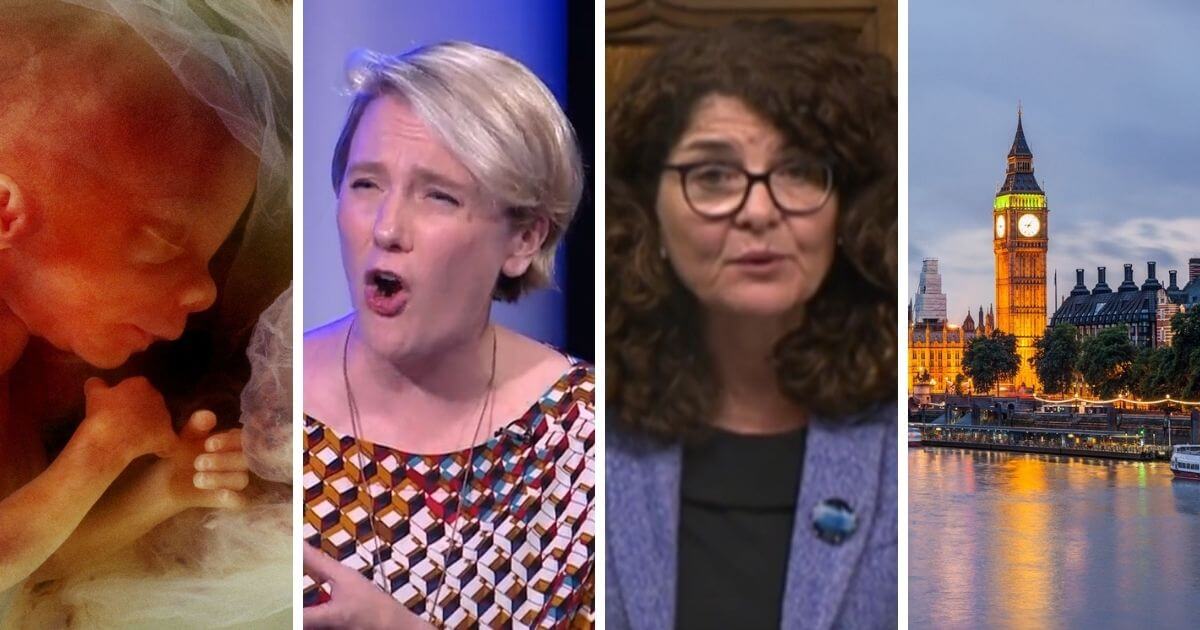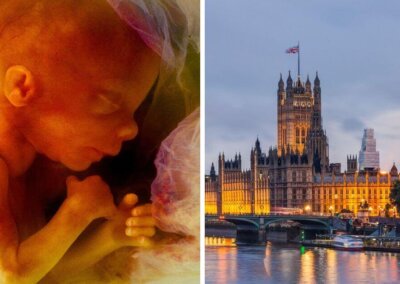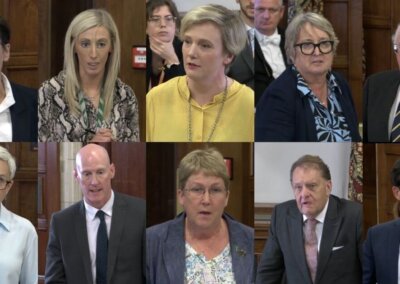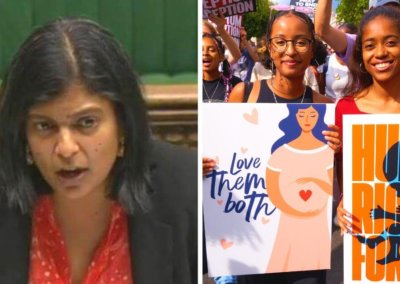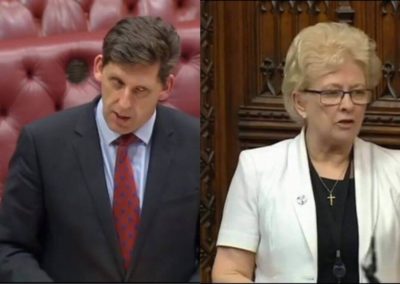Pro-abortion MPs, Stella Creasy and Diana Johnson, have hijacked a Government Bill by tabling amendments that propose removing offences that make it illegal to perform a self-abortion at any point right through to birth.
After Tuesday’s debate on the Second Reading of the Government’s Criminal Justice Bill, Stella Creasy and Diana Johnson, tabled their extreme amendments to the Government’s flagship Criminal Justice Bill.
Neither of the amendments outlines circumstances in which it would continue to be an offence to perform a self-abortion – the changes to the law would apply throughout nine months of pregnancy and would not exclude sex-selective abortions.
Stella Creasy’s amendment, if it became law, would also repeal Section 60 of the Offences Against the Person Act, which is currently used to make it illegal to hide the body of a dead newborn baby, including in circumstances when the baby has been killed through infanticide. Section 60 is also important in stopping individuals from preventing an investigation into the cause of a baby’s death when infanticide is suspected.
These amendments would likely lead to an increased number of babies’ lives being ended through late-term abortions performed at home, as well as the lives of many more women being endangered.
No criminal sanctions for abortion at any stage of pregnancy
Johnson’s amendment would ensure there are no criminal sanctions for a woman who has an abortion at any stage of pregnancy. However, by amending the abortion law in this way, self-abortions will, de facto, become possible up to birth as women could deceive abortion providers about their gestational age (as in the case of Carla Foster, who pretended to be 7 weeks pregnant but took pills at 32-34 weeks gestation).
In such circumstances, neither the woman nor the abortion provider (who only has to act in “good faith” and does not need to verify gestational age via an in-person appointment) could be held accountable for a late-term abortion.
Prior to her tabling the amendment, during the debate on the Criminal Justice Bill, Johnson insisted that her proposal “would not change any law regarding the provision of abortion services within a healthcare setting in England and Wales”. However, since the majority of abortions now take place away from a clinical setting, women would be able to take abortion pills at home at any stage of their pregnancy up to birth without committing an offence.
Creasy amendment
Stella Creasy’s amendment would have similar effects to Johnson’s but goes further insofar as it also calls for the repeal of Section 60 of the OAPA, which concerns “[c]oncealing the birth of a child’.
Section 60 is currently used to make it illegal to hide the body of a dead newborn baby, including in circumstances when the baby has been killed through infanticide. Section 60 is also important in stopping individuals from preventing an investigation into the cause of a child’s death when infanticide is suspected.
MP admits DIY abortions may have led to an increase in illegal abortions after 10 weeks gestation
During their speeches on the Criminal Justice Bill, both MPs drew attention to the increased instances of illegal abortions since DIY at-home abortions have been introduced.
Johnson made an apparent reference to Carla Foster, who was prosecuted after the British Pregnancy Advisory Service sent out abortion pills to her leading to the death of her baby, Lily, 22 weeks beyond the legal limit for at-home abortions.
However, this case would not have happened had the gestation of baby Lily been accurately identified by ultrasound or a physical examination during an in-person appointment. If this appointment had taken place, the gestation of the baby would have been accurately identified and an abortion could not have taken place.
When asked why there had been an increase in prosecutions for illegal abortions by Independent MP for Beckenham Bob Stewart, Creasy admitted the legalisation of abortions outside of a clinical setting was a possible reason.
She said: “I wish I could tell the hon. Gentleman what I think is the cause for sure. There are a number of pressures—perhaps the move towards telemedicine or a renewed interest in the issue…”
Conservative MP Maria Miller, while supporting decriminalisation, questioned whether the Criminal Justice Bill was “the right place to do that, when there is perhaps not sufficient time to go through all the details”.
Serious health concerns
Government data released last week demonstrates that self-performing a late-term medical abortion away from a clinical environment without in-person medical supervision puts the lives of women at considerable risk.
The data shows that a medical abortion performed at 20 weeks and over has a complication rate 160 times that of an abortion under 10 weeks. The complication rate is likely to be much higher for women performing their own abortions at home without medical supervision well beyond the current 24-week time limit.
Right To Life UK spokesperson Catherine Robinson said: “The obvious reason why there were so few prosecutions in the first 160 years following the legal prohibition on abortion established in the Offences Against the Person Act (1861), but an increase in the last few years, is because of the fact that over half of all abortions now happen without any in-person medical oversight”.
“In at-home abortions, since there is no mechanism to establish the gestation of the unborn baby, an unknown number of abortions are now taking place after the 10 week limit. The baby Lily case is the most high-profile of these cases in which a woman had an at-home abortion without medical supervision at 32 weeks gestation, and it is likely just the tip of the iceberg”.
“Incredibly, even those pushing for a change in the law acknowledge that the move to ‘telemedicine’ abortion – in which there is no in-person consultation with a medical professional – is a likely reason for the increase in prosecutions”.
“The in-person requirement for abortion which existed up until 2020 acted as a safeguard to protect women and their babies not only from abortion which becomes increasingly dangerous for women at later gestations, but also from the threat of coercion”.
“Instead of pushing for fewer safeguards through these amendments, MPs who care about women and their babies should be seeking greater oversight and protections, including an ending of abortion outside of a clinical setting”.


